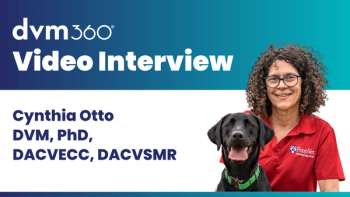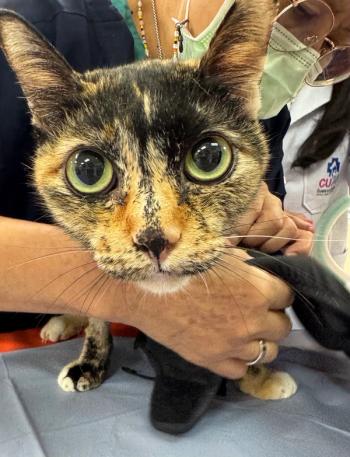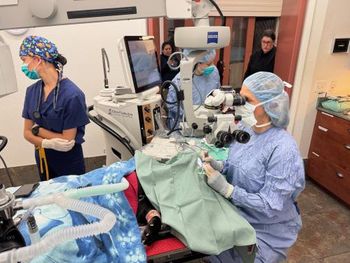
Are We Screening Adequately for Feline Hypertension?
According to a recent UK study, blood pressure measurement is underperformed in primary care, especially in geriatric cats.
Routine blood pressure assessment is recommended for apparently healthy geriatric cats, as well as for those suffering from disease, such as chronic kidney disease or hyperthyroidism. However,
Methods
Investigators used the VetCompass database to identify rates of blood pressure assessment and subsequent diagnosis of hypertension in feline patients. Diagnosis was either noted in the medical record or indirectly indicated by prescription of antihypertensive medication.
The investigators then looked for potential relationships between hypertension and patient variables, such as age at diagnosis, survival, and presence of concurrent diseases.
RELATED:
- FDA Approves First Drug for Systemic Hypertension in Cats
- Potential Biomarkers of Hypertension in Cats
Results
Records were available for 347,889 cats presenting to 244 primary care clinics in the United Kingdom over a 2-year period. From these records, the authors estimated that blood pressure was assessed in 1.3% of cats, with assessment occurring most frequently in cats 9 years and older. Ninety-five percent of assessments included peripheral blood pressure measurement, while the remaining cats were assessed via ocular examination for signs of hypertensive ocular damage or via clinical detection of related findings, such as blindness, neurologic signs, and hyperthyroidism.
Hypertension was diagnosed in an estimated 19.5% of assessed cats over a 2-year period. Median age and body weight at the time of diagnosis were 16 years and 3.4 kg, respectively. Patients were evenly distributed by sex, and most hypertensive cats were neutered and crossbred. Two-thirds of diagnosed patients presented specifically for hypertension-related clinical signs, while others were diagnosed incidentally during monitoring for concurrent diseases, anesthesia, or geriatric assessment. Median systolic blood pressure at the time of hypertension diagnosis was 206 mm Hg, placing most cats within the ACVIM “severe risk” category.
Eighty percent of hypertensive cats were treated medically. Most were prescribed amlodipine, either alone or in combination with benazepril, and many cats with uncontrolled hypertension eventually required an increased dose of amlodipine. Common comorbidities in hypertensive patients included chronic kidney disease, hyperthyroidism, and diabetes mellitus.
Most patients for which only short-term follow-up information was available were euthanized shortly after diagnosis. Those with long-term follow-up records had a median survival time of 400 days after diagnosis. The most commonly cited reason for euthanasia, regardless of survival time, was quality-of-life issues.
Cats that were not prescribed amlodipine had a higher risk of death after diagnosis than with those that received amlodipine. Also, those cats presenting for hypertension-related clinical signs (eg, retinal detachment, tortuous vessels), as well as cats with concurrent chronic kidney disease or diabetes mellitus, had relatively short survival times compared with other cats.
Take-Home Message
This study showed that only 1 in 23 geriatric cats underwent blood pressure assessment in the UK over a 2-year period. The authors cited this as an alarmingly low screening rate. They emphasized that regular blood pressure measurement during routine health screening facilitates “earlier diagnosis of hypertension and earlier implementation of treatment,” thus improving patient survival and quality of life.
Dr. Stilwell received her DVM from Auburn University, followed by a MS in fisheries and aquatic sciences and a PhD in veterinary medical sciences from the University of Florida. She provides freelance medical writing and aquatic veterinary consulting services through her business, Seastar Communications and Consulting.
Newsletter
From exam room tips to practice management insights, get trusted veterinary news delivered straight to your inbox—subscribe to dvm360.






